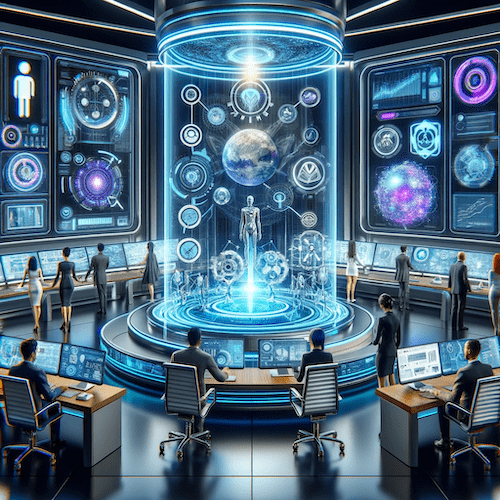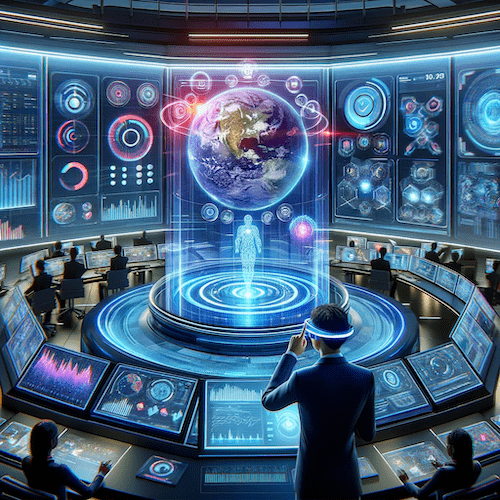
In an era where artificial intelligence (AI) and machine learning (ML) are reshaping our world, developing a mindset akin to these technological marvels has become increasingly important. Whether you’re a professional in tech, a curious learner, or someone fascinated by the rapid advancements in AI, understanding and adopting the ways an AI “thinks” can be incredibly beneficial. This blog post explores how one can cultivate a machine-learning mindset. This approach blends data-driven decision-making, iterative learning, and ethical consideration, mirroring the core principles of AI and ML.
Understanding the Basics of AI and Machine Learning
At its core, artificial intelligence (AI) is about creating machines that can perform tasks that typically require human intelligence. These tasks span a wide range, from problem-solving and recognizing patterns to understanding and processing natural language, even making decisions based on complex data. The goal of AI is to mimic the cognitive functions of human beings, enabling machines to act with a level of intelligence that was once thought to be exclusively human.
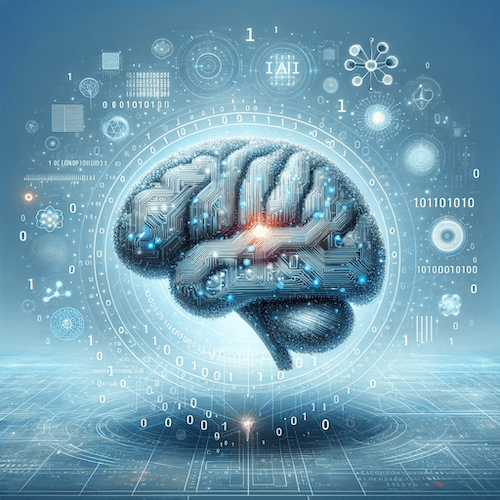
The Evolution of AI
The journey of AI began as a pursuit to understand and replicate human intelligence. Early AI research focused on rule-based systems that could solve logical problems. As technology advanced, so did the capabilities of AI, evolving from simple rule-based algorithms to complex machine learning models that can learn and adapt over time.
Machine Learning: A Subset of AI
Machine learning (ML) is a critical subset of AI, focusing on the development of systems that can learn from and adapt to new data without human intervention. This is achieved through algorithms that analyze and interpret data, identify patterns, and make decisions with minimal human guidance. Unlike traditional software that follows strict rules and produces predictable outcomes, ML algorithms improve and evolve as they are exposed to more data.
Key Concepts in AI
- Algorithms: At the heart of AI are algorithms – sets of rules or instructions that machines follow to solve problems or make decisions. These algorithms range from simple decision trees to complex neural networks, each designed for specific tasks.
- Neural Networks: Inspired by the human brain, neural networks form the backbone of many AI systems. They consist of interconnected nodes (similar to neurons) that process and transmit information. These networks can learn and make intelligent decisions by adjusting the connections based on the data they process.
- Deep Learning: A subset of machine learning, deep learning involves neural networks with many layers (hence ‘deep’). These networks are capable of learning from vast amounts of data and can identify patterns too complex for human detection or traditional computing methods. Deep learning has been instrumental in breakthroughs like image and speech recognition.
Applications of AI and Machine Learning
The applications of AI and ML are diverse and far-reaching. In healthcare, AI algorithms help diagnose diseases and predict patient outcomes. In finance, they are used for risk assessment and fraud detection. AI powers virtual assistants in our phones and homes, and it’s behind the recommendation systems of Netflix and Amazon. Self-driving cars, which seemed like science fiction a few decades ago, are now becoming a reality thanks to AI.
The Future of AI and Machine Learning
The future of AI and ML is one of limitless potential. As these technologies continue to advance, they will become more efficient, accurate, and capable of handling complex tasks. The integration of AI into various sectors of society is expected to bring significant changes, both in the way we work and in our daily lives. However, alongside these advancements, there are important ethical considerations regarding privacy, bias, and the impact of AI on employment and society as a whole.
Developing a Data-Driven Mindset
Data is the lifeblood of AI. To think like an AI, one must first understand its importance. This means learning to view both problems and solutions through a data-centric lens. A machine-learning mindset involves asking questions like, “What data do I have?” “What patterns can this data reveal?” and “How can this data inform my decision-making process?”
Embracing Experimentation and Iteration
A core principle of AI and machine learning is the iterative process of model development. Unlike traditional approaches, where the goal is to get it right the first time, AI thrives on trial and error. Cultivating a machine-learning mindset means embracing experimentation. It involves understanding that failure is not a setback but a step forward, providing valuable data for the next iteration. This mindset encourages creative problem-solving and resilience, recognizing that each attempt brings you closer to a more refined solution.
Critical Thinking and Problem-Solving in AI
AI tackles problems through a blend of critical thinking and pattern recognition. To think like an AI, one must develop an ability to analyze situations critically, break down complex problems into smaller, manageable parts, and systematically explore potential solutions. This approach is not just about finding any solution but the most efficient and effective one based on available data and desired outcomes.
Understanding Bias and Ethics in AI
As powerful as AI is, it’s not free from biases, which often stem from the data it’s trained on. Cultivating a machine learning mindset involves a deep understanding of how biases can creep into AI systems and the ethical implications of AI decisions. This awareness is crucial for developing AI solutions that are fair, transparent, and ethical, ensuring that they serve the broader interests of society while minimizing harm.
Continuous Learning and Adaptability
The field of AI is ever-evolving, with new advancements emerging rapidly. Adopting an AI mindset means committing to continuous learning and adaptability. It’s about staying curious, keeping abreast of the latest technologies and trends, and being willing to adapt your knowledge and skills continually. This approach mirrors the way AI systems continuously learn from new data, refining their algorithms and improving over time.
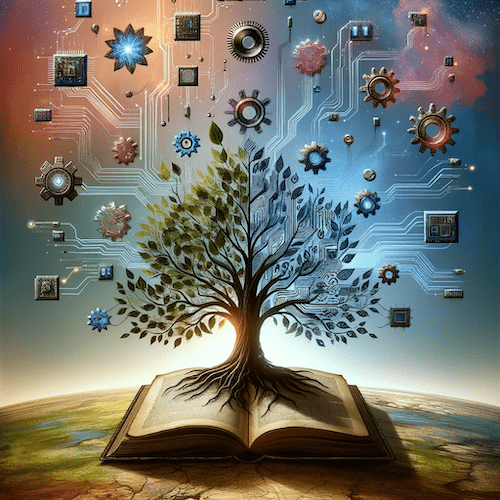
Collaboration with AI and Human Intelligence
While AI can perform many tasks, it doesn’t operate in isolation. A machine learning mindset also involves understanding the importance of AI and human intelligence collaboration. This synergy leverages the strengths of both AI – its efficiency and scalability- and humans’ creativity and empathy. In AI projects, teamwork and a collaborative approach are essential for achieving innovative and effective solutions.
Cultivating a machine-learning mindset transcends the mere understanding of AI and machine-learning principles; it’s about embracing a transformative way of thinking and problem-solving that’s data-driven, iterative, ethical, and collaborative. This approach doesn’t just allow individuals and organizations to keep pace with technological advancements; it empowers them to use these advancements to solve real-world problems more effectively.
Find An Expert To Learn More
As AI continues to evolve, so too should our methods and mindsets. To truly harness the potential of this technology, we must be willing to learn, adapt, and collaborate. For those eager to embark on this journey, a great starting point is Three Birds Digital’s webinar, “The Beginner’s Guide to AI.” This session is designed to help you take the first step in understanding the world of AI, offering insights into how it can be leveraged in various industries and professions.
Don’t miss this opportunity to expand your knowledge and adapt a mindset that’s geared for the future. Join us for an enlightening experience that could mark the beginning of your journey in AI. Register now and be part of a community that’s shaping the future with AI.
Register for “The Beginner’s Guide to AI” by Three Birds Digital
Embark on this transformative journey and redefine how you think, solve problems, and innovate. The future is AI, and the time to adapt is now.
